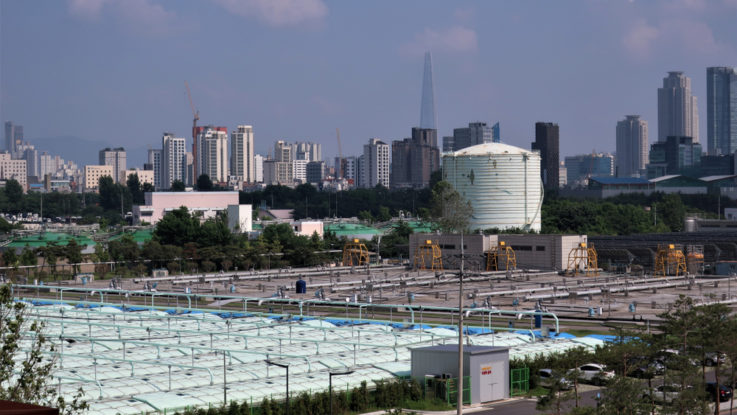
Seoul, Korea recently announced its long-range plans to transform its four wastewater treatment centers into artificial intelligence (AI)-based “intelligent water reuse centres.” The city will have an automated sewage treatment system in place by the year 2030.
Currently, the four water recycling centers are fully managed by human workers who are required to manually analyse the data that affects the sewage treatment process. Key data will be collected to create big data sets that the AI system can analyse in real time and use to manage the water quality automatically.
The city states that this will lead to greater efficiency and transparency of the sewage treatment, delivering greater systemised quality control, saving on personnel time, and reducing operational costs. The new system is also expected to reduce energy consumption and help minimise greenhouse gas emissions by reducing unnecessary operating of machines.
The Seoul Metropolitan Government (SMG) plans to establish the related smart infrastructures in three stages, beginning this year. The initial stage will involve constructing the following:
- An integrated database infrastructure to collect and save the necessary data for the surveillance and management of the sewage treatment process;
- a central surveillance system to gather the data collected from the four centres into one place; and,
- and a remote monitoring system to allow personnel to see and manage the entire sewage treatment status using tablet PCs and smartphones.
The second stage (2023-2027) will continue the creation of the system, leading to the development of an application program in the third stage (2028-2030).
“By adopting the AI-based automated system in four water reuse centres in Seoul, we aim to take a leap towards a city with intelligent centres,” said Han Yu-Seok, director general of the Water Circulation Safety Bureau. “We are looking forward to optimised quality control with the maximised efficiency of sewage treatment operations.”